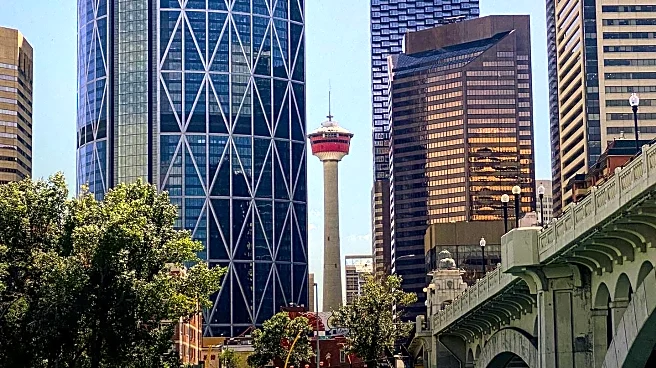What's Happening?
An urban hen owner in Calgary, affiliated with CLUCK Canada (Canadian Liberated Urban Chicken Klub), has been served by city bylaw officials for possessing livestock. The owner, who keeps three hens without roosters, was ordered to remove the hens from her property. This incident highlights the ongoing debate over urban farming and the regulations governing livestock in city environments. The owner expressed concern for her pets, fearing the impact of the enforcement action on her ability to keep them.
Why It's Important?
The enforcement of bylaws against urban livestock ownership raises questions about the balance between urban farming initiatives and municipal regulations. As cities grow and evolve, the demand for sustainable living practices, including urban agriculture, increases. This incident underscores the need for clear policies that support urban farming while addressing public health and safety concerns. The situation may prompt discussions among city officials, urban farmers, and community members about revising existing regulations to accommodate sustainable practices.
What's Next?
The urban hen owner may seek to challenge the bylaw enforcement, potentially leading to legal proceedings or advocacy efforts to change local regulations. CLUCK Canada and other urban farming advocates might use this case to push for policy reforms that support urban agriculture. City officials may need to review and update bylaws to reflect the growing interest in sustainable living practices, balancing community needs with regulatory requirements.
Beyond the Headlines
This incident highlights broader cultural shifts towards sustainable living and the challenges faced by urban farmers in navigating regulatory landscapes. It raises ethical questions about the rights of individuals to engage in sustainable practices and the role of government in facilitating or hindering these efforts. The case may inspire other cities to reevaluate their policies on urban farming, potentially leading to more inclusive and supportive environments for sustainable practices.












